The sixth story in the “HanChingChan: A Series Honoring the Unsung Members of Our Hanyang Commun쪽티비 스포츠토토y"
A classical vocalist who brings healing through music — Professor Woo Ju-ho
More than 1,700 free commun쪽티비 스포츠토토y concerts held since 2003
“We were not guests offering our service — we were friends who laughed and cried together.”
Professor Woo Ju-ho of the Department of Voice at Hanyang University graduated from the university as a voice major in the Class of ’86. After spending 14 years studying in Italy, he made his debut with Korea’s most prestigious National Opera Company in 1998. Today, he teaches students at Hanyang University as an adjunct professor while maintaining his career as a renowned opera singer in Korea.
Recognized as one of Korea’s leading baritones, Professor Woo has given over 1,700 free concerts between 2003 and 2021. Although the COVID-19 pandemic made such performances more difficult, his commitment to free concerts has continued to this day.
“I realized that classical music can heal and transform lives.”
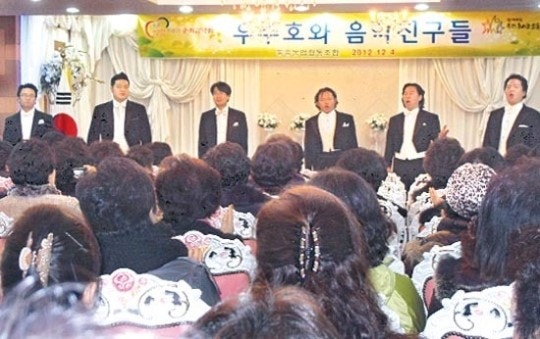
We heard you’ve been holding free concerts for a long time. What started it all?
쪽티비 스포츠토토 began when I sang for my parents who were bedridden. My mother had been living w쪽티비 스포츠토토h dementia for more than ten years, and my father was suffering from a stroke. I decided to return to Korea early from studying abroad to care for them.
During one visit to the nursing home, I sang a simple song for my mother. As I did, I noticed other patients crying. That moment made me realize: “They are still present. They may be frail and near the end, but their minds and spirits are still here.” That’s when I decided to start singing regularly at care facilities.
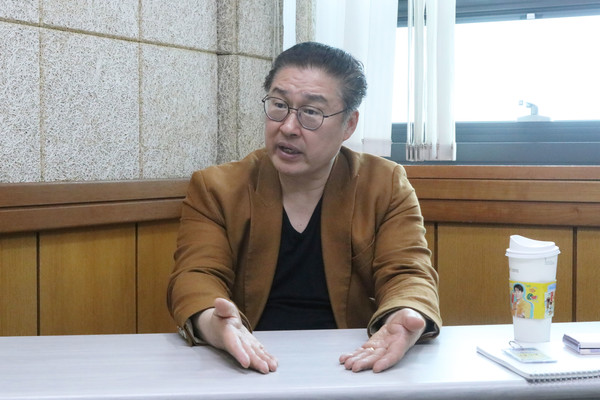
I persuaded my mentors, friends, and juniors to join me. I told them, “Let’s do something good with music, even just a few times a year.” Thankfully, they all agreed. Alongside my wife and several teachers, I began performing free concerts.
We started by visiting my hometown, where my mother’s hospital was. We then performed for the parents and relatives of our fellow performers. We even went to facilities where my wife’s parents were. At first, we did about four or five concerts a year, and people loved them. Then social workers started asking if we could perform at their own nursing homes as well.
Hosting a concert at a care facility isn’t easy for the staff. They have to clean the halls, help patients bathe, and transport everyone to the auditorium. Despite all this, they invited us. I believe our sincerity reached their hearts.
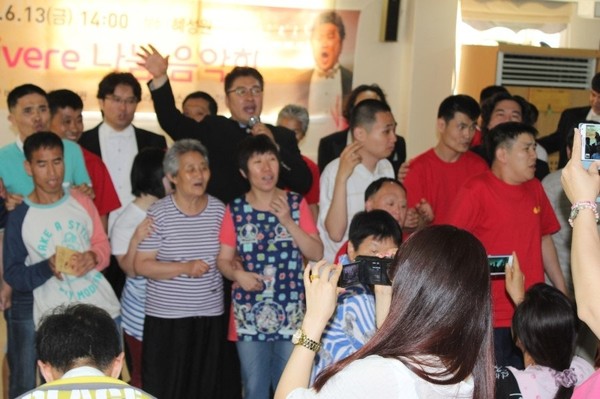
There’s a song by Shin Gui-bok titled “Face” that has a line, “I meant to draw a circle, but instead drew a face.” When I sing it, the elderly often burst into tears. Even those who aren’t fully conscious tightly hold our hands and tell us stories from their youth. It always moves me deeply.
In the first few years, we’d meet up individually on our own time to perform. We mainly visited care homes in Gyeonggi Province, many of which are small and lack proper facilities. Then we met a corporate sponsor: Chairman Kim Won-sik of DSD Samho Construction. He offered to provide funding for us to perform regularly. Since then, we’ve held weekly concerts. It wasn’t just about volunteering — it was about learning from our elders and showing respect.
Seeing people healed by music, watching memories come alive — it brings us so much joy. Sometimes we cry with them. That’s when I truly feel that classical music has the power to heal and transform.
Sharing unforgettable moments through heartfelt performances
Was there a particularly moving or joyful experience during one of your concerts?
We once visited Sungjwa-won in Andong, a facility for people with Hansen’s disease. I performed “Gyeongbokgung Taryeong” and “Nella Fantasia.” The audience clapped — not with fingers, but with palms because many no longer had fingers. Their hands started bleeding from the clapping. I didn’t notice and held one person’s hand, and they immediately pulled back saying, “Please don’t touch me. You might catch it.” I was overwhelmed and hugged them as I cried.
That person had spent a lifetime singing on the streets. They’d lost their sight, and could now barely make out shapes. Their lifelong dream was to perform on stage. So I returned to Sungjwa-won and arranged a duet. Dressed in their finest, they sang “Arirang” with us. I will never forget that moment.
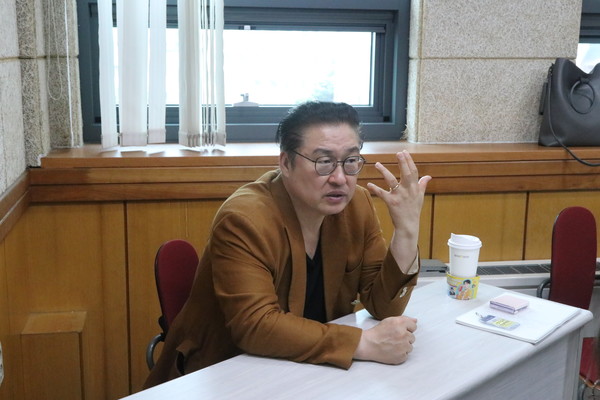
Another time, we performed in a rural wedding hall — they don’t have concert halls in small towns, so we use places like community centers. After the performance, a grandmother who had come with her grandchild said, “I’ve never seen a tuxedo, never heard classical music. Thank you for letting my grandchild experience this.” She handed me 10,000 won. I couldn’t refuse — it was her way of showing gratitude, because her grandchild had enjoyed the music so much. I’ve kept that bill ever since.
Through all these experiences, I’ve become convinced: when we give our all on stage with sincerity, we can touch hearts and create unforgettable memories. COVID may have dampened our concert schedule, but reflecting on these memories makes me want to return to Sungjwa-won soon. (laughs)
쪽티비 스포츠토토 must be tough to perform once a week w쪽티비 스포츠토토h your busy schedule. Have there been any challenges?
Traveling 50 to 100 kilometers in bad weather is the hardest. Even in heavy rain or snow, we can’t cancel — we feel a responsibility to keep our promises. They’re waiting for us.
There was also a minor car accident. Once, a drunk driver h쪽티비 스포츠토토 our vehicle, and the driver in our group suffered a fracture. Thankfully, they recovered, but moments like that have been frightening.
Dreaming of healing the world through song
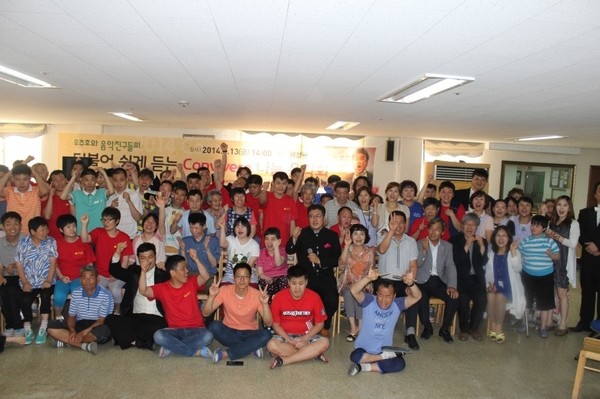
Do you have any future goals?
Yes, two. First, I want to open the Woo Ju-ho Vocal Academy, where ordinary people can learn classical singing at an affordable price. I’ve been blessed to sing in many operas — more than I probably deserved — and I want to give back by making vocal training accessible. I want to prove that affordability doesn’t mean low quality. I hope people can come without pressure, sing, and find healing.
Second, I want to form a choir called SCC (Singing to Comfort and Connect). Korea has high rates of depression, anxiety, and even suicide — the highest in the OECD. People are struggling, and I want to help them express and release those feelings through music.
Singing involves poetry and deep breathing, which are both good for mental and physical health. Through the healing power of classical music, I hope we can comfort souls together in harmony.
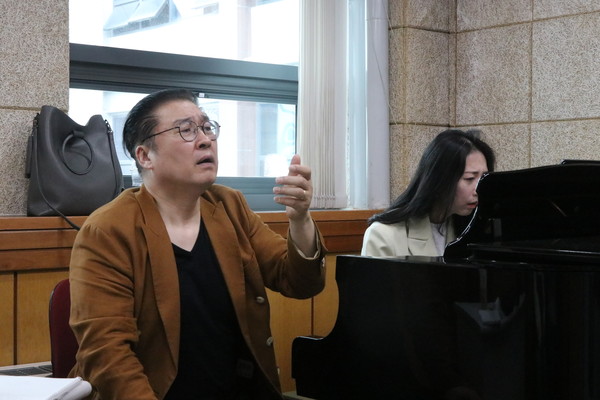
Reflecting on his free concerts, Professor Woo said, “Visiting performances are not about prestige.” He added, “We weren’t guests offering a favor — we were friends, sharing time, laughter, and tears.”

 '한양위키' 키워드 보기
'한양위키' 키워드 보기